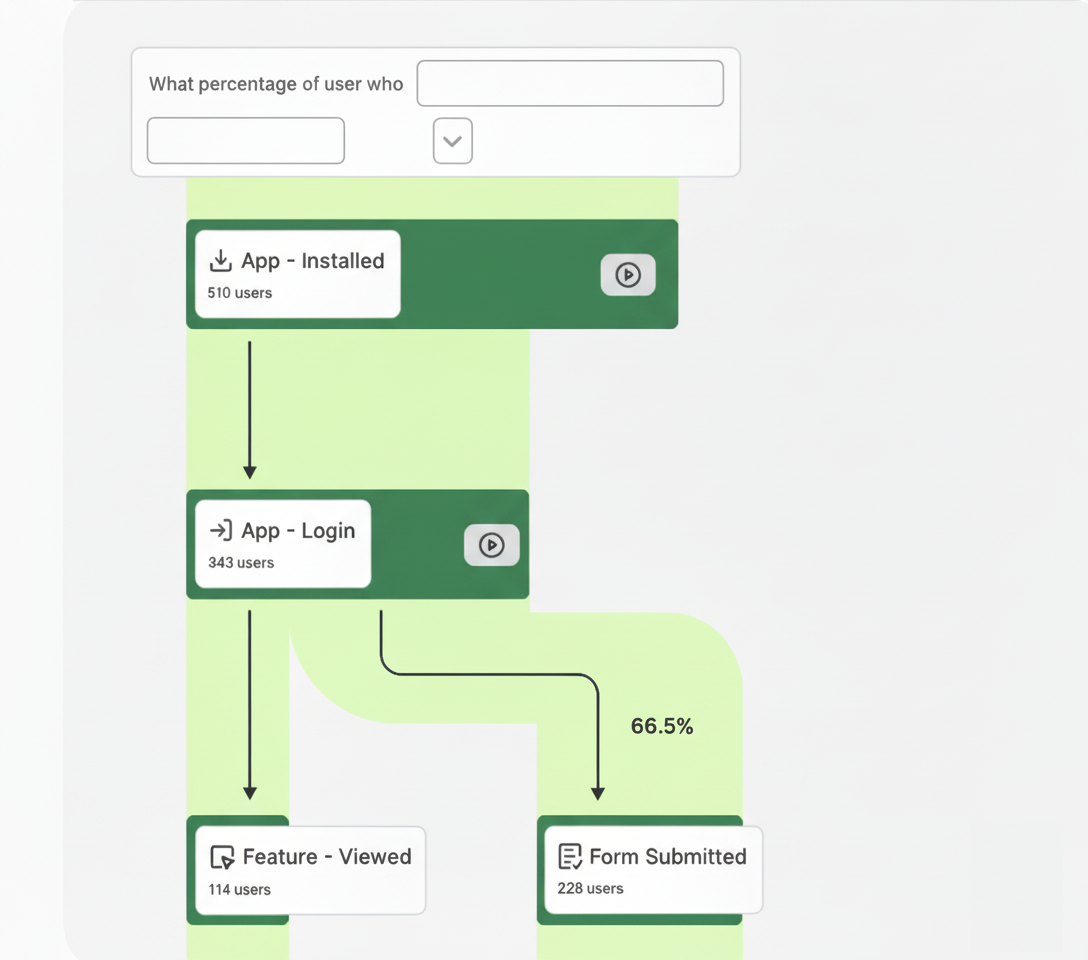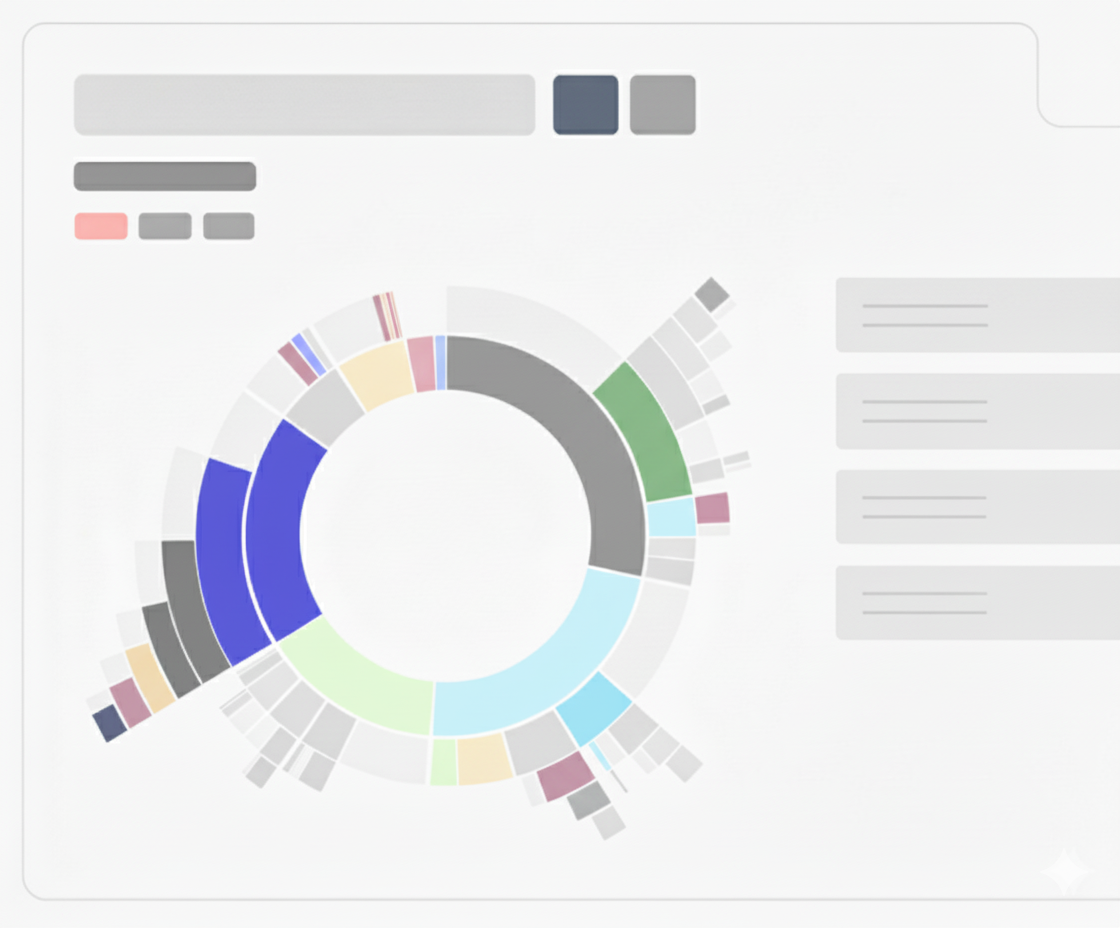Compatibility
- Programming languages: The iOS SDK supports and tracks content on any screen developed in Objective-C or Swift (version >= 4.2).
- SwiftUI: is officially supported
- iOS version: starting with SDK 4.17.0 we support iOS 12.4 and later
- Starting with SDK 4.36.0, no data will be collected for applications running on iOS < 13.0
- Current Xcode supports simulators on 12.4 and later
- ReactNative requires a minimum of iOS 12.4
- All devices released since 2014 can be updated to iOS 12.4
SFSafariViewControlleris not supported
Known limitations and recommendations
Section titled Known limitations and recommendationsScreenshot fidelity: Combining Visual Effects with Filters
Section titled Screenshot fidelity: Combining Visual Effects with FiltersSymptom: Some elements of the screenshots may not be visible, such as UITabBar buttons.
Explanation: Our capturing method prevents to capture views when Visual effects are combined with filters. Our tools captures as much as Xcode’s ‘Debug View Hierarchy’ feature. If you want to preview what is going to be rendered, you can use this feature to visualize your screen. See Capturing a Snapshot of a UIVisualEffectView ↗.
Screenshot fidelity: Customized layer(s) applied on a container view
Section titled Screenshot fidelity: Customized layer(s) applied on a container viewSymptom: Some elements of the screenshots may not be displayed correctly in the Zoning Analysis.
Explanation: Our capture method relies on views to determine zoning elements. A view containing subviews is a container and when a container is assigned a customized layer ↗, it may not appear in the Zoning Analysis.
Workaround: Instead of applying customized layer to the container, prefer applying it on view of type, or subtype, UIImageView or UIControl.
Screenshot fidelity: Floating header/footer missing in Zoning
Section titled Screenshot fidelity: Floating header/footer missing in ZoningSymptom: Some elements of the screenshots don't exist in the Zoning Analysis.
Explanation: The Zoning Analysis module does not support UITableViewHeaderFooterView in UITableView and UICollectionReusableView in UICollectionView due to their highly dynamic memory and rendering behavior.
Screenshot fidelity: Floating header/footer duplicated in Zoning
Section titled Screenshot fidelity: Floating header/footer duplicated in ZoningSymptom: Some elements appear multiple times in the Zoning Analysis.
Explanation: The Screenshot captures the currently visible content on screen. When a floating header/footer remains visible during scrolling, it may be captured at different positions throughout the Long screenshot process, resulting in duplications.
Screenshot fidelity: Multiple vertical scrollViews
Section titled Screenshot fidelity: Multiple vertical scrollViewsSymptom: The Long Screenshot cinematic may not start on mobile, or the resulting screenshot might be unscrollable in Zoning Analysis.
Explanation: When multiple vertical scrollViews are present on a screen, the Long Screenshot cinematic will attempt to run only on the last vertical scrollView the user interacted with. Other scrollable areas will not be automatically scrolled or captured by the cinematic process, even if they contain content. In practice, this means the automatic scrolling (and full content capture) is limited to a single scrollView per screen, based on user interaction.
Gestures not attached to UIImageView
Section titled Gestures not attached to UIImageViewSymptom: When analysing the tap rate on an image, we see 0% when we know it is not possible.
Explanation: By default UIImageView have their isUserInteractionEnabled property set to false (See Apple documentation ↗).
This means that the UIImageView won’t receive any input event. All events will be handled by the first parent to have isUserInteractionEnabled set to true (usually the first parent will do).
Workaround: Create a zone on the parent view to get the taps on the image.
UICollectionViewCompositionalLayout TVP lack of consistency
Section titled UICollectionViewCompositionalLayout TVP lack of consistencyExplanation: As explained in the Apple documentation ↗, UICollectionViewCompositionalLayout is a highly dynamic layout creation object. We are not able to ensure TVP value is the same between different usages.
Zoning Limitation in SwiftUI with scrolling (Lazy)Stack and (Lazy)Grid
Section titled Zoning Limitation in SwiftUI with scrolling (Lazy)Stack and (Lazy)Grid-
Screenshot and Gesture Tracking Limitations:
- Using
LazyStack, orLazyGridnested in aScrollViewmay present limitations in screenshot and gesture tracking due to differences in memory management compared to UIKit. - Intricate hierarchies of
LazyStacksorLazyGridscan lead to inconsistent identification of elements, impacting the reliability of element identification. Prefer to use single layered Lazy components, when possible.
- Using
-
Rotation Limitation:
- Unique identification of elements within SwiftUI
Stack,Grid,LazyStack, orLazyGridis not guaranteed after a rotation, so, rotation is not supported forStack,Grid,LazyStack, orLazyGrid.
- Unique identification of elements within SwiftUI
-
Scrolling Element Offset Limitation:
- The consistency of unique identifiers is not guaranteed when the scrolling element is displayed starting at an offset different than zero.
Check the following Help Center article for more information about the symptom, root cause and potential mitigation solutions: I can't create a zone on a list element on iOS (SwiftUI) ↗

